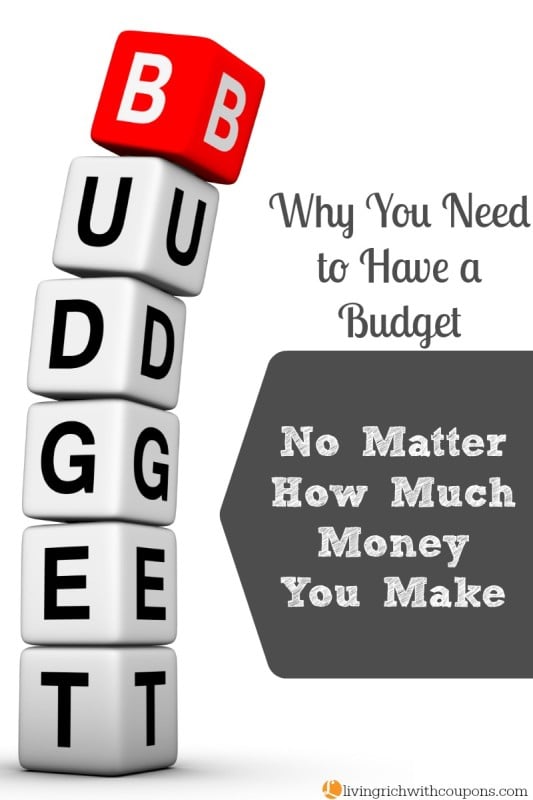 When I recently discussed the difficulties of quantifying a “good” or “average” grocery budget for a family of four, I slipped in another comment that most commenters (since they were talking about their budgets, duh!) didn’t even see:
When I recently discussed the difficulties of quantifying a “good” or “average” grocery budget for a family of four, I slipped in another comment that most commenters (since they were talking about their budgets, duh!) didn’t even see:
In my opinion, generating a budget is the number one most important and financially responsible thing you can do.
On a site dedicated to saving money and decreasing debt, this seems like a no-brainer. However, you would be shocked at how many people, couponers or not, actually lack any budget when it comes to grocery shopping or even playing games at Bonusetu.
Want proof? A 2013 Gallup poll found that a mere 32% of Americans actually keep a detailed budget of their household expenses each month.
Kind of makes you wonder about the root of many people’s financial struggles…
The Value of Budgeting
The problem is that when many people hear the term “budget” they think of things like spreadsheets and complicated arithmetic. And, while both of those have their place within the budgeting sphere, there are a ton of ways to budget, or plan your expenditures, that don’t involve hours of pouring over figures and pinching pennies. In fact, once they get a handle on what they make and what they spend, many people set budget figures in ranges, such as $600-800/month on groceries, rather than exact figures.
However, when you start out, it is essential to keep track of the specifics, which is why budgeting scares so many people. Yet doing this, non-judgmentally by the way, is the only way to determine a few important things about yourself and your spending habits:
- Am I living beyond my means?
- Am I saving for important future expenses (i.e. retirement, college, or the purchase of a new home)?
- Can I afford the luxuries I indulge in?
- Can I afford more (and more important) luxuries by changing my spending habits in some areas?
Contrary to popular belief, budgeting is not restricting. By accounting for what you have and what you need, you actually allow yourself to get more of what you want without the stressing over whether or not it is something you can afford. For those in debt, budgeting is a key weapon in freeing yourself from the real restriction (debt!). You can still bet at satta king with a healthy limit.
The biggest cost of budgeting is the time cost at the beginning (and maybe a bit of a blow to the ego). No doubt, taking account of all your income and expenditures is tough. However, the freedom and relief you get from this practice is more than worth it in the long run in terms of time, money, and confidence.
Why Millionaires Still Need Budgets
Budgeting is not just something limited to the low-income crowd, however, and this is another big hurdle many people need to clear, according to a online casino ohne deutsche lizenz 2023 survey. And, really, how much money is “enough” in this economy anyway? Do we even know how much we need, I mean truly need to live the life we want?
Reality has a way of waking us up from the fantasy of the “perfect” income or job or financial behavior.
For example, when I was a kid, anything over $100 seemed like a massive amount of money. When I thought about how much I “needed” to earn to live a comfortable life, the figure was vastly lower than reality has proven.
This is partly because the cost of living, even in the 1990s, was way cheaper than it is in the 2010s. However, it is also because, once you start adding in “unseen” and unexpected expenses like utility costs in the winter (sub-zero temperatures, anyone?), a fluctuating commodities market (remember when a dozen eggs cost $1? I do), and societal pressure (my 6 year-old is already lusting after an iPod), the real costs of life add up – and quickly!
These realities don’t change with more money. In fact, they compound. A bigger house takes more oil to heat, for example. That’s why, even if my income magically doubled (or tripled) overnight, I would still use the principles of budgeting for my everyday expenses, because…
budgeting = accountability
…and everyone needs to be accountable for themselves and their finances.
Ever heard this one?
Q: “What do M.C. Hammer, Larry King, Kim Bassinger, and Meatloaf all have in common?”
A: “Bankruptcy”
Making millions of dollars does not insulate people from financial hardship and, in many ways, those with the most to spend are actually those most likely to misspend it. There is actually a threshold of wealth that separates (in general, at least) responsible money managers and those who spend without care. Members of the latter group may never find themselves in financial turmoil, but there is no doubt that they could be doing more with what they have.
If you were suddenly a millionaire, would your attitude and actions surrounding budgeting and money management change? How?

